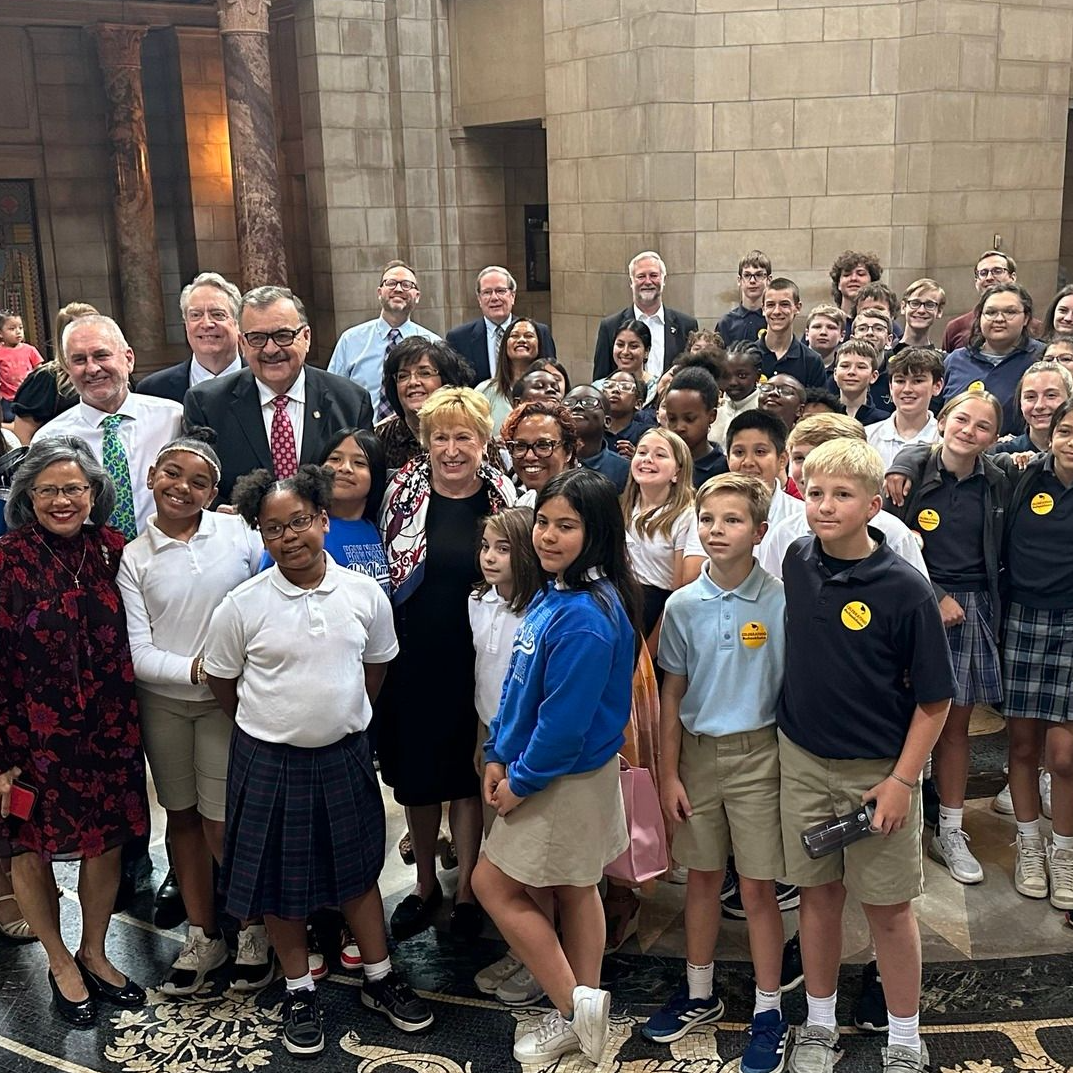
COURTESY PHOTO
News
Scholarship program faces another referendum attempt
April 30, 2024
School choice requires vigilance, Nebraska Sen. Lou Ann Linehan has said.
She would know.
A scholarship program she introduced in the Legislature and fought for is under threat again. Opponents are seeking another referendum that would repeal her latest effort to continue the program.
About a week ago, on April 25, Gov. Jim Pillen signed into law Linehan’s priority for the 2024 legislative session, Legislative Bill 1402. This bill provides $10 million a year – in direct state funding – for scholarships that will help families in need send their children to private schools.
On April 30, the state teachers union and other opponents of the program announced that they would seek another referendum.
They had been attempting to repeal a law from last year – which has been using tax credits to fund the K-12 scholarships – and had gained enough signatures to put last year’s measure up for a vote on the November ballot.
The new law was intended to make that referendum moot because, according to state law, direct appropriations from the state can’t be repealed by referendum.
Linehan, a member of St. Patrick Parish in Elkhorn, said earlier that she is confident the new school-choice law could withstand any challenges promised by opponents.
“I feel confident going forward,” she said, but Nebraskans will have to continue to fight for school choice.
“I think if we get students in schools and people see how it works and that it doesn’t hurt public schools, then I think it’ll be OK. We just have to make sure we get plenty of kids scholarships, as many as we can.”
Under the new school choice measure, the state will appropriate $10 million a year for private-school scholarships for children from low-income families, military families or who are in foster care or have experienced bullying.
Scholarship-granting organizations are beginning to learn more about the students seeking help, said Tom Venzor, executive director of the Nebraska Catholic Conference (NCC).
Among the first 1,565 students to apply for scholarships, he said, 47% are from rural areas, 53% are from urban areas (Lincoln and the Omaha metro area), 40% are students of color, 47% are at or below 213% of the poverty level (defined by the threshold for the Children’s Health Insurance Program) and 12% are students with special education needs.
There is a demonstrated need for the scholarships, Venzor said. “Our friends at Opportunity Scholarships of Nebraska (one of the state-approved scholarship-granting organizations) said it best: ‘A threat to repeal LB1402 is a direct threat to these families and their children’s future.'”
Venzor called the scholarship program “life-transforming.”
The NCC advocates for school choice, he said, because the organization “is dedicated to protecting and advancing the basic and natural right of families to direct the educational upbringing of their children, and to make sure our public policies support this fundamental right of parents.”
READ MORE FROM THE CATHOLIC VOICE: